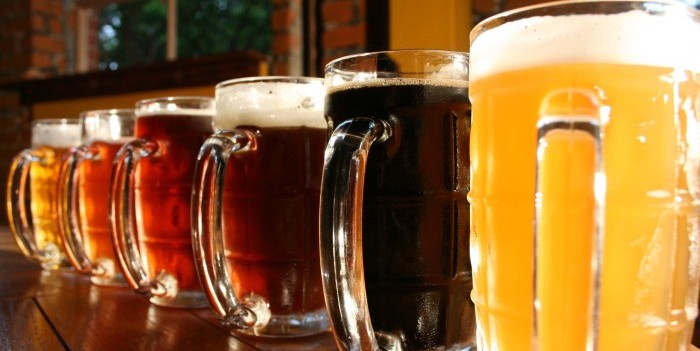Britain experiences craft beer revolution
A 2013 Campaign For Real Ale report found the number of UK breweries had reached a 70 year high, a figure that was predicted to accelerate this year. A Mintel 2013 report reinforced these figures, stating that the alcoholic drinks industry would grow to £45bn by 2017 – and microbreweries would be leading the charge.
A microbrewery revolution is indeed ‘brewing’ with ‘craft’ beer demonstrating increasingl popularity, with a Society of Independent Brewers’ survey suggesting that production increased by seven per cent last year.
This is chiefly due to the introduction of progressive beer duty in 2002, which means that microbreweries pay less than larger businesses in the same sector. As a result the number of microbreweries have almost doubled over the past four years.
Furthermore, craft beer has been known to appeal to a much wider consumer range. According to Sam Lloyd, founder of independent beer maker event Craft Beer Rising,
“the demographic of beer drinkers is rapidly evolving, with craft beer appealing to a more discerning drinker – both male and female.”
Thornbridge Brewery, based in Derbyshire, has seen their export sales double over the past two years. The company currently exports to 33 countries, including Italy, Mexico and the US.
“It came from people knocking on our door. Social media’s been important too,”
said marketing manager Alex Buchanan.
“We can tweet about a new beer and we’re getting responses from all over the world asking to buy it.”
At only 12 months old, Camden Town Brewery dedicates its success to focussing on more than one country.
Head brewer Alex Troncoso, said:
“From a wider business sense it’s important not to have all your eggs in one basket. It’s good to spread beer through a few different markets.”
“We’re picking and choosing our markets, and it’s growing from a tiny base.” He also explained that it is crucial to work with local distributors in new markets.”
Another microbrewery, British brands BrewDog, exports to 50 countries, accounting for 60 per cent of its sales. For James Watt its co-founder, the most crucial thing to do is meet local distributors and build relationships with them.
Source: Real Business
Words: Daniel Pearce


